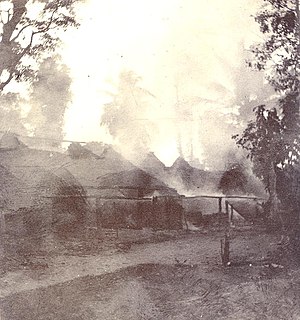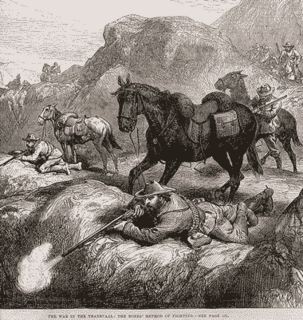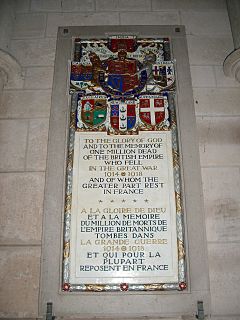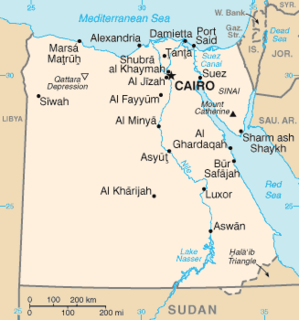 W
WThe Anglo-Aro War (1901–1902) was a conflict between the Aro Confederacy in present-day Eastern Nigeria, and the British Empire. The war began after increasing tension between Aro leaders and British colonialists after years of failed negotiations.
 W
WThe First Boer War, 1880-1881, also known as the First Anglo-Boer War, the Transvaal War or the Transvaal Rebellion, was a war fought from 16 December 1880 until 23 March 1881 between the United Kingdom and Boers of the Transvaal. The war resulted in Britain’s accession to the establishment of the Second Republic.
 W
WThe Second Boer War was fought between the British Empire and two independent Boer states, the South African Republic and the Orange Free State, over the Empire's influence in South Africa. The trigger of the war was the discovery of diamonds and gold in the Boer states. The war is also known as the Boer War, Anglo-Boer War, or South African War. Initial Boer attacks were successful, and although British reinforcements later reversed these, the war continued for years with Boer guerrilla warfare, until harsh British counter-measures including a scorched earth policy brought the Boers to terms.
 W
WThe Singapore strategy was a naval defence policy of the British Empire that evolved in a series of war plans from 1919 to 1941. It aimed to deter aggression by the Empire of Japan by providing for a base for a fleet of the Royal Navy in the Far East, able to intercept and defeat a Japanese force heading south towards India or Australia. To be effective it required a well-equipped base; Singapore, at the eastern end of the Strait of Malacca, was chosen in 1919 as the location of this base; work continued on this naval base and its defences over the next two decades.
 W
WSt. David's Battery, also known during wartime as the "Examination Battery", was a fixed battery of rifled breech-loader (RBL) artillery guns, built and manned by the Royal Garrison Artillery and the Royal Engineers, and their part-time reserves, the Bermuda Militia Artillery and the Bermuda Volunteer Engineers, part of the Bermuda Garrison of the British Army.
 W
WThe War in Vietnam, codenamed Operation Masterdom by the British, and also known as Nam Bộ kháng chiến by the Vietnamese, was a post–World War II armed conflict involving a largely British-Indian and French task force and Japanese troops from the Southern Expeditionary Army Group, versus the Vietnamese communist movement, the Viet Minh, for control of the southern half of the country, after the unconditional Japanese surrender.
 W
WBetween 1923 and 1936, the Imperial War Graves Commission erected a series of memorial tablets in French and Belgian cathedrals to commemorate the British Empire dead of the First World War. The tablets were erected in towns in which British Army or Empire troops had been quartered.
 W
WIn 1882, Egypt was occupied by the United Kingdom, following the Orabi Revolt against the Egyptian khedive. The Kingdom of Egypt was essentially under British control thereafter, even after the formal recognition of Egyptian independence in 1922, with British troops remaining around the Suez Canal zone. Full Egyptian self-rule was not realised until the Egyptian Revolution of 1952.